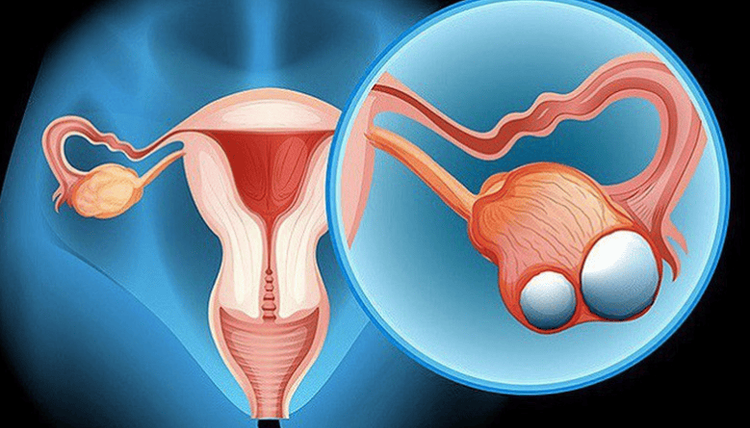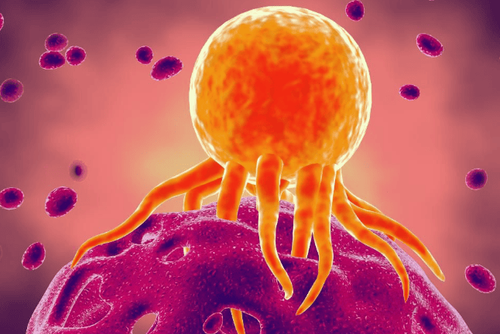This is an automatically translated article.
The article is professionally consulted by Associate Professor, Doctor, Doctor Vu Hong Thang - Oncologist - Radiation Oncology Center - Vinmec Times City International Hospital. And Master, Doctor Tran Ngoc Hai - Internal Oncologist - Internal Oncology Department - Vinmec Times City International General Hospital. The doctor has extensive experience in the examination, diagnosis and treatment of cancers.After successful treatment, cancer can still come back after a while in that organ or surrounding areas or metastasize to another organ in the body.
1. Why does cancer come back?
Cancer can sometimes come back even after successful treatment. This phenomenon is called cancer recurrence. Similar to new cancers, recurrent and metastatic cancers can appear anywhere in the body.The reason why cancer recurs is because previous treatments did not kill all the cancer cells in the body. In fact, even very small malignant cells left behind can develop into tumors over time. Meanwhile, these cells are too small and the test is not capable of detecting.
Specialists usually evaluate a patient for cancer recurrence if they have no signs of the disease for at least a year after treatment. Cancer has the potential to come back again and again and in some cases may not go away forever.
When receiving a definitive diagnosis of cancer recurrence, most patients will feel fear, anxiety, sadness and loss of confidence in life. However, there are now many methods of treating cancer recurrence as well as providing psychological support for patients to cope with this disease.
Cancer reappearing does not mean that previous treatments have not worked. In fact, malignant cancer cells are often difficult to cure completely, even able to survive rounds of aggressive treatment.
2. Cancer recurs in which organ?
Cancer can appear in the place where the original cancer germ was discovered or in another organ in the body.Doctors often classify recurrent cancer according to how far it has spread and where it was found, specifically as follows:
If the cancer comes back in the same organ where it started (or very close to where it started) this) is called a “local recurrence”; If the tumor occurs in the lymph nodes or tissues near where the cancer was originally found, it is called “regional recurrence”; If cancer cells have spread and metastasized to other organs unrelated to the previous cancer site, it is called advanced or metastatic cancer. Even if the cancer reappears and spreads to another location, it is still named after the organ where it was originally found. For example, a patient whose breast cancer comes back but appears in the liver is still called metastatic breast cancer.
Diagnostic tests such as imaging scans, lab tests, and analysis of biopsy samples will help your doctor decide if your cancer is coming back. Because in fact, the patient may already have a new type of cancer that is not related to the original cancer, called a second primary cancer. This is a condition that occurs when a new type of cancer arises from malignant cells in another organ, not as a result of metastasis from the previous cancer. Some specialized tests are used to detect whether a cancer is recurrent or newly acquired. Second primary cancers are much less common than recurrent cancers, but it can still happen.
Doctors may also use the term "advanced cancer" to describe a patient's condition. This is different from “relapse,” but sometimes people confuse the two terms. This depends mainly on how long the patient has had no symptoms of cancer. Recurrence is when cancer symptoms go away, then come back, while progression is when cancer gets worse or spreads to other areas. In some cases, the cancer quickly reappears because the malignant cells become resistant to the drug, so this is considered an advanced cancer.
3. Which subjects often get cancer back?

Ung thư buồng trứng là căn bệnh nguy hiểm có khả năng quay trở lại rất cao
Besides, some types of cancer are more likely to come back than others. For example, some statistics show that:
7 out of 10 women with ovarian cancer will relapse; Half of patients with colorectal cancer who undergo surgery will also return 3 years later. In the future, some genetic tests may be able to predict in advance whether certain cancers, such as breast cancer, colon cancer, and melanoma, are likely to return.
4. Treatment of recurrent cancer
Cancer that comes back does not always respond in the same way to the first treatment. In fact, the treatment plan for cancer recurrence depends on the type of cancer a patient has, how advanced it is, and where it is located in the body.If the cancer recurs at the original site, surgery or radiation therapy (local treatment) is the appropriate option. However, if the disease has spread to distant organs, the doctor will prescribe more aggressive treatments (systemic treatments) such as chemotherapy, biological therapy, or immunotherapy.
Patients can participate in clinical trials. These studies allow patients to receive potentially new treatments.
5. Living with recurrent cancer
Many people have been cured of cancer but are always worried that their disease will come back. Research from the American Cancer Society shows that, one year after diagnosis, about two-thirds of patients fear the cancer will return.Some cancers come back only once, while some can come back 2 or 3 times. Some patients with recurrent cancer may never be cured. However, with the right treatment and a truly active lifestyle, many people can live with recurrent cancer for a long time. To them, cancer is like a chronic disease, similar to diabetes or heart disease.
6. What to do when cancer recurs?

Điều trị ung thư là cuộc chiến lâu dài mà người bệnh cần phải giữ tinh thần tích cực
The following tips will help patients feel more comfortable during treatment for recurrent cancer:
Learn to deal with negative emotions; Actively manage cancer symptoms and treatment side effects; Spend time with family and friends, sharing with them about your experiences. Regular check-ups are a way to help patients detect and prevent cancer recurrence early. Therefore, patients after cancer treatment need to have regular check-ups according to the doctor's schedule.
The Center for Oncology - Radiation Therapy at Vinmec International General Hospital was built according to international standards, using a multi-specialty approach model in diagnosis and selection of appropriate treatment regimens for each disease. contribute to comprehensive patient care.
Vinmec Cancer - Radiation Center is one of the centers in Vietnam that is fully equipped with cancer treatment models: From surgery, radiation therapy, chemotherapy, hematopoietic stem cell transplant, treatment pain and palliative care. The diagnosis is made carefully: Blood tests, advanced imaging techniques such as: PET/CT, SPECT/CT, MRI..., blood marrow analysis, biopsy, histochemistry Immunoassay, molecular biology diagnosis. The treatment process is closely coordinated with many specialties.
Vinmec Oncology Department continuously cooperates with prestigious hospitals of the US, France, Korea, Taiwan, Japan... in cancer treatment, and is committed to providing modern treatment methods. with the most professional, convenient, dedicated and most reasonable cost right in Vietnam.
Please dial HOTLINE for more information or register for an appointment HERE. Download MyVinmec app to make appointments faster and to manage your bookings easily.
References: webmd.com, cancer.gov












